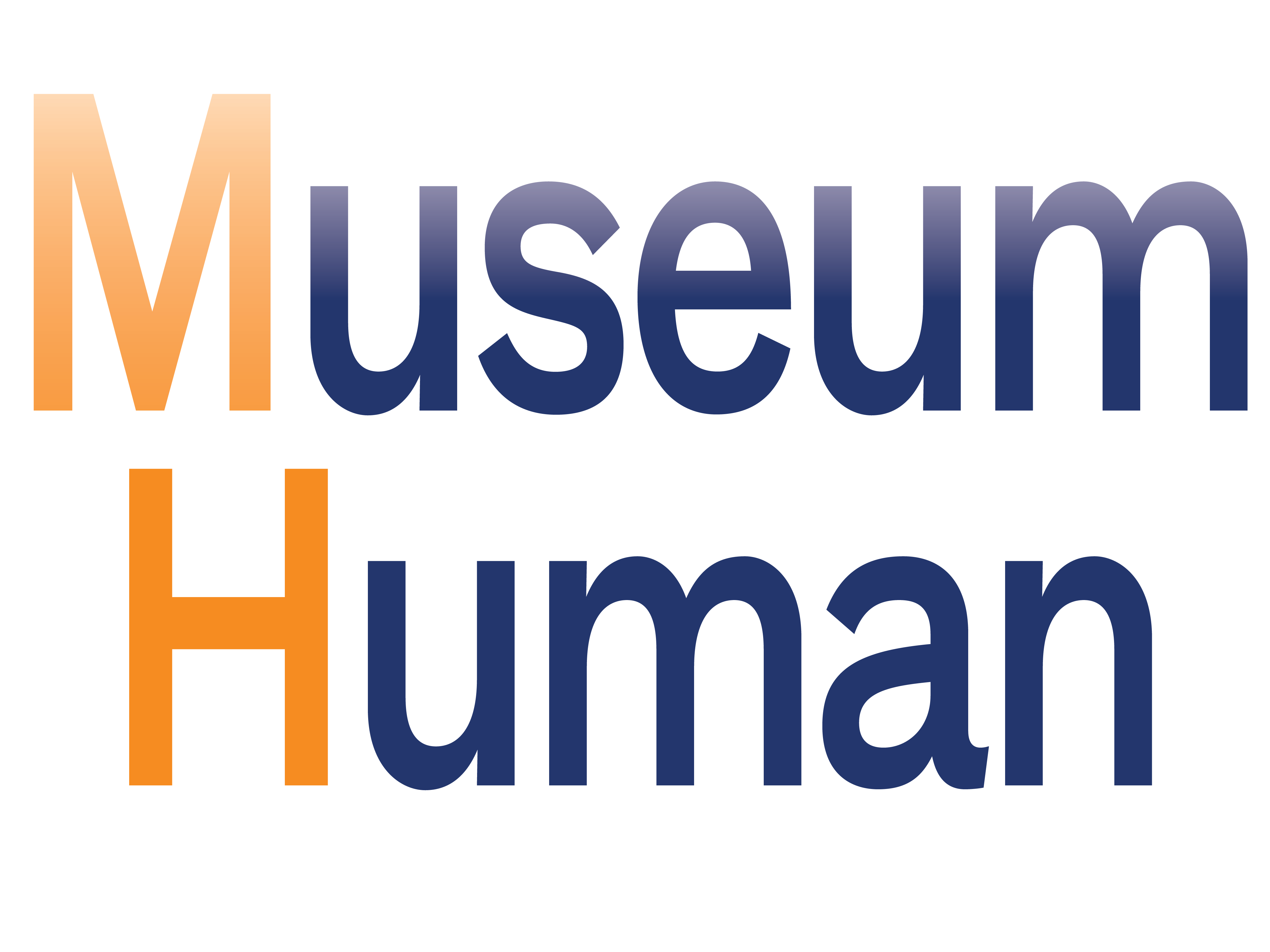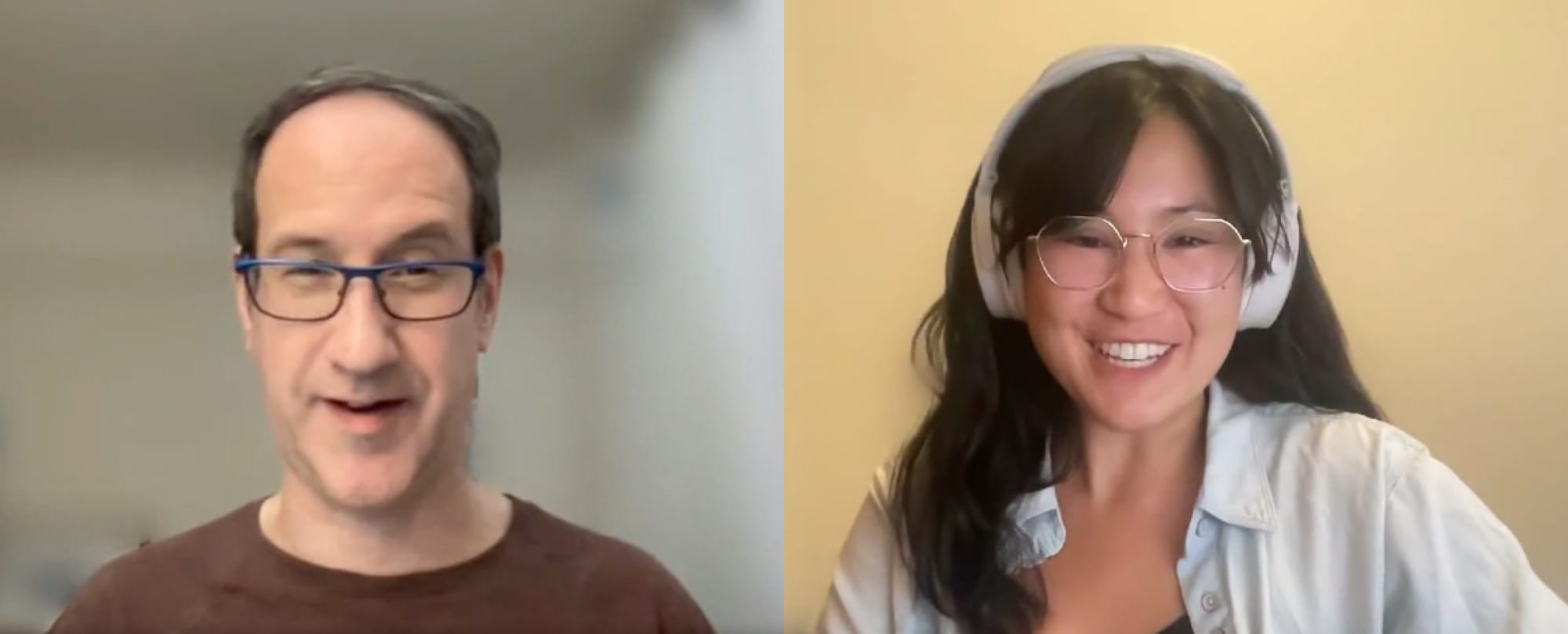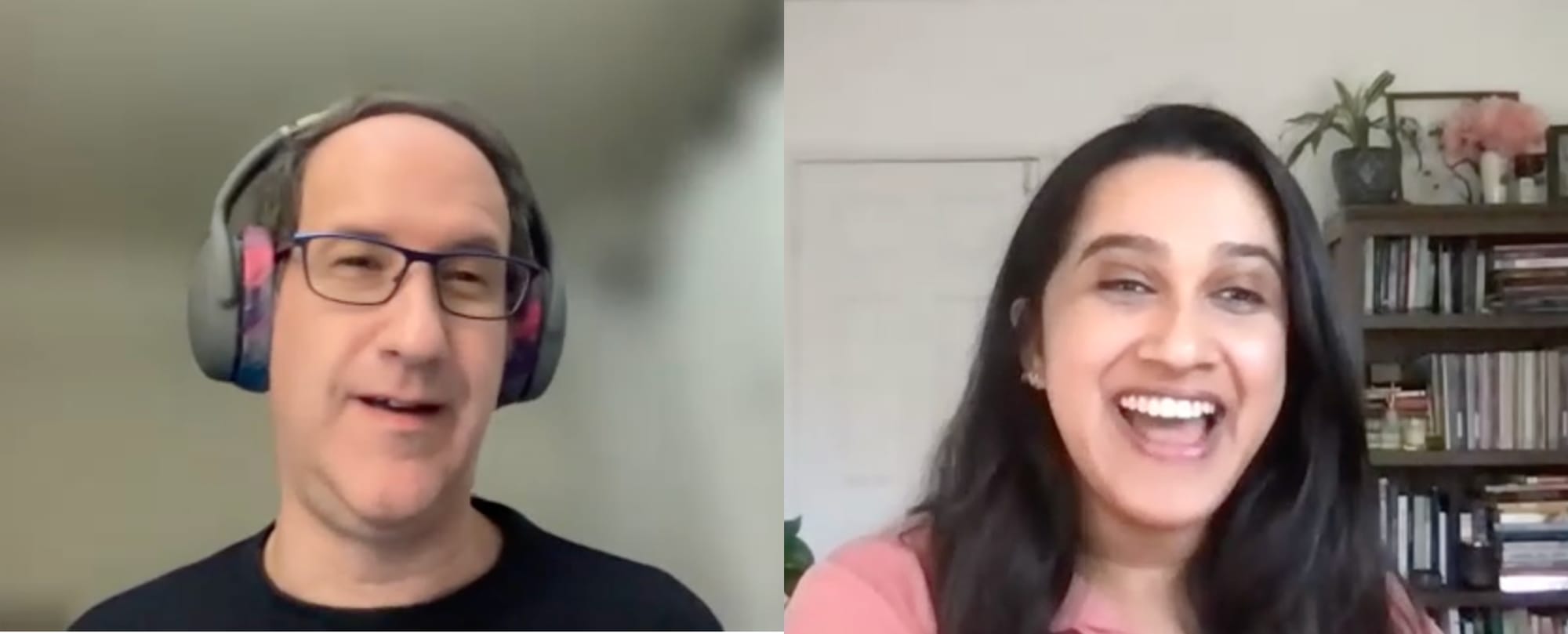
There's crazy amounts of change around us—personal, professional, societal—so two of us self-styled change agents wrote a book about how to deal, and then how to deal yourself in.
This is a joint post by Robert J. Weisberg and Seema Rao
Change is so pervasive in human existence that people should be able to meet transitions with self-assurance and equanimity. However, most people meet change with stress and anxiety. This reaction natural; surviving and thriving during change is not innate or easy. However, everyone can learn skills to be able to not only handle and grow in transitions.
The two of us, Rob and Seema (who churns out blog posts regularly on BrilliantIdeasStudio.com), met at the Museum Computer Network’s 2014 conference in Dallas and we have been talking about—and writing about—change ever since. Not just the change we’re doing, or trying to institute or trying to convince others to institute. We write about change as a concept, as a practice, as a sort of lifestyle whether we want it or not. And on the way, we chatted about everything and nothing. Through the laughter and bad jokes, we also found a number of commonalities.
Between us, we have almost 40 years of museum experience and understand the challenges of being in an interstitial position in a large organization. At our core, we both believe that organizations can do better for their staff, and that staff can enact change to make this happen.
But, change takes a toll—whether you’re the one making the change, or—more likely in the roiling museum field—the changes are being done to you. (Change Agent, Change Thyself!) Add to that the impact of political change, the daily and even hourly gyrations in news, stocks, and the many people, conflict over racial, gender, and normality, and it’s clear that change is hard. Like with cognitive load, we only have a certain amount of change we can handle before we start to break down.
So when we came up with the idea for a session at MCN2017 in Pittsburgh about making it through change environments, it felt natural—well, to Seema—to also write a book. (Here are links to audio of our MCN session and our slide deck.) The book is now available to purchase from a little company which runs a newspaper …
We found that our shared beliefs and disparate experiences allowed us to create a book that can be useful to survive and thrive during transitions. The resulting book combines Rob’s intellectual sensibility and Seema’s activity-based methodologies.
Readers will find an informative discussion of change which will allow them to consider change outside of their own life in an analytical manner. With this foundation, readers can explore methods to survive change—the section devoted to this can be seen as a sort of triage, to learn tactics and build skills to be able to move past the stress-state transition can cause. The final section then helps readers to thrive during this transition to a more centered mindset, focusing on transforming readers into people who can meet any change with aplomb.
The 80 pages of Change at Work: Not Just Surviving but Thriving (including space for notes) are different than most books on change because we trace a personal journey through change, from dealing with the first tremors to the relentless, constant nature of change, and how to evolve in positive ways from life’s difficulties. Get ready for exercises in self-reflection but also motivation, from solitary examinations to the inspiring those around you.
The process was also a wonderful lesson in collaboration. Both of us highly recommend it—you find out a lot about yourself in non-fiction writing when you have someone pressing you. A short book is a great way to capture that blogpost-plus mentality; so is a long article on Medium or working on a podcast, which I have yet to do but Seema recommends.
It’s good to have tools. You can be a self-help and lifehacking junkie, but you need methods and practices. Seema is a toolbox machine—the exercises in the book are almost all her creation—while Rob worships at the altar of Harvard Business Review, which has more workplace and personal psychology articles than you’d expect.

Anyway, check out the book! And if you’re in the museum field, check out MCN2018—the call for proposals is open now!
If you enjoyed this post, and you're not already a member of Museum Human, consider subscribing for free to read more about issues in the museum sector through an organizational culture lens. It's the only way to read new posts, get full access to the entire MH archive, and check out exclusives like the members reading list. Subscribe and join hundreds of your fellow cultural-sector readers today!

We Made a Book! by Robert J Weisberg is licensed under a Creative Commons Attribution-NonCommercial-ShareAlike 4.0 International License.






